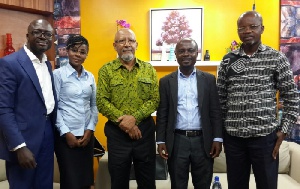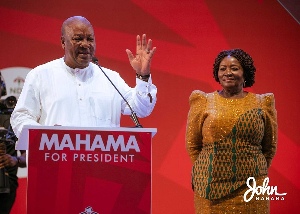The cost to the nation for ignoring innovations for quality public education is huge. I’ve seen too many schools – in different parts of the world, and taught a good many nationalities – to now conclude that the way we mistreat and miseducate the children and the youth in Africa is an indictment on the people and elders who lead this continent.
It is patently unacceptable how the African child and youth are neglected, one era after another. Unless we treat the children and youth as special and with respect, they too will grow up and perpetuate the same things we don’t want or need, that is, the vicious cycle of greed and poverty across board. They need to see and feel what is useful by the examples the elders set. Who else can they emulate? Africa is failing itself from the negative attitudes of the elders!
Imagine, for example, the number of toilets the cost of one politician’s or official’s land cruiser will build for the children in a number of Ghana’s public schools! Imagine, again, the number of toilets one first class air travel for some measly inconsequential conference can build in any district!
For those reasons, it was good hearing the representatives of the National Democratic Congress (Alex Okuoku), New Patriotic Party (Ibrahim Adjei), and Progressive People’s Party (Andrew Kwasi Duroi) articulate their views on the way forward. We are indebted to Annie Ampofo, of the First Digital TV, for hosting the event, on Monday 14th November 2016. May the good God continue to bless this wonderful young woman and others like Nana Ansah Kwao of Joy TV who care so much for the nation’s children.
The dialogue must continue for an acceptable national narrative that will benefit the youth in this country. Let me say flat out that it is high time education evolved beyond periodic political campaign promises and slogans. It has become a tiring and costly thing!
The following are recommendations to add some value to the manifestoes:
Schools sitting in dust without toilets
The need for cleanliness in public schools – especially the lack of toilet facilities and water for both adults and children to wash their hands for good hygiene – cannot go unheeded. Equally of grave concerns are the numerous public schools that sit in dust across the length and breadth of the country, with open defecation as the de facto standard. The manifestoes must address the negligence of those public officials – coasting comfortably on the nation’s payroll, with perks – whose responsibility it is to make sure that the proper hygienic conditions exist for the well-being of the nation’s children.
Education for employability and entrepreneurship
From the basic to the university levels, expertise and creativity are not skills one learns by sitting and listening. They are things you do; things one commits for a “Life’s Work”, and “Purpose”. Useful projects shape attitudes and aspirations in superior ways, grabbing hold of the imagination and channeling one’s energies into lifelong patterns of loftier aspirations. They spoke to a progressive future of creative entrepreneurs.
Learners should be released from the bondage behind desks, and encouraged to test their learning in practical and useful ways. The essential question is not what we learn today, but what we do consistently with what we learn. What is studied in schools must be usefully related to Ghana’s progress, and in real-life contexts.
Adding value to the nation’s natural resources
Manifestoes for proper school reforms for a developing country must engage hands-on abilities for skills that add value to Ghana’s enormous natural inputs and endowment. It is time to sound out new prospects that test candidates not by what knowledge they can memorise to pass examinations but the useful things they do for them to become relevant.
The subject centred fragmented curricula must be replaced by objectives that support skills, for example, Food Production, Food Preservation, Food packaging, Fish Farming, Landscaping, Rain Harvesting, Environment Protection, Irrigation, a Maintenance Culture, and so on, as opposed to studying academic subjects in a vacuum of passivity that continue to keep both the educated and the nation poor since independence in 1957.
The learning tasks involved must be built on real-life needs. The reason Ghana continues to be Third World is the undue stale emphasis on traditional subject matters peculiar to grammar type “chew and pour” rote education which discerning nations are now avoiding.
ICT education for digitizing government documents
More than ever, it is now necessary to set up uniform ICT systems and templates to digitize the files of every government office, hospitals, clinics and so on to avoid future mishaps, be they by accident, negligence, or wilful intent. Once the structures – software, equipment, and training – have been sorted out, the inputting can be done by the nation’s students as meaningful Practicals in the respective municipalities and districts across the nation.
The need to bring innovation and efficiencies into government structures should be a foregone conclusion. It’s time to treat Information Technology as a strategic resource and thereby shift our abler students into thinking work as opposed to repetitive copying, and non-thinking work.
The fires that blazed government offices such the Ministry of Foreign Affairs and Lands Department in Accra, and the High Court in Kumasi laid bare our vulnerabilities. The fires evoked case studies: Besides the destruction of physical property, the archival and intellectual capital which were lost to the fires could have been retrieved through comprehensive backups in digitized national storage systems.
[To be continued]
Opinions of Tuesday, 22 November 2016
Columnist: Anis Haffar















